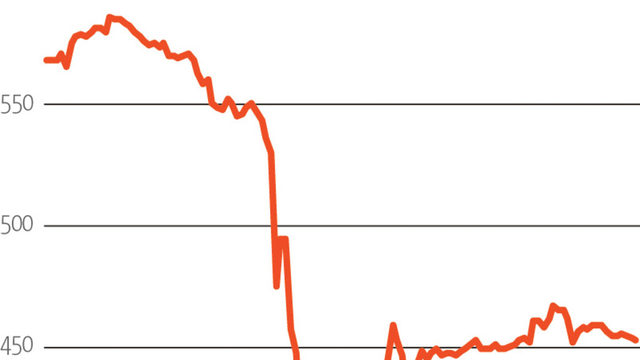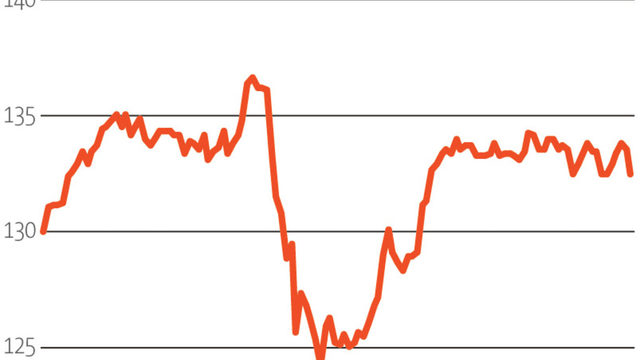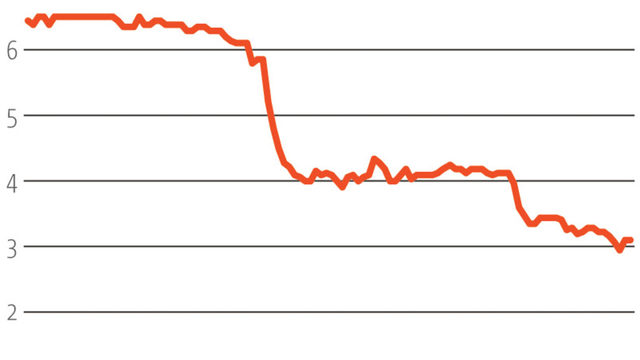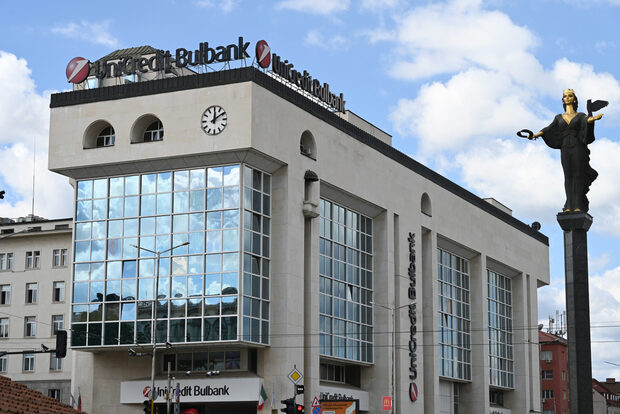With the coronavirus pandemic ravaging the local economy, companies listed on the Bulgarian Stock Exchange suffered a bruising first half of 2020, much like their regional and global peers. The collapse of the OPEC+ deal in early March, which sent global oil prices plummeting, coincided with the first cases of the novel coronavirus disease in Bulgaria to create the perfect storm on the local stock market.
In this period of uncertainty, Bulgarian blue-chip stocks, which are widely expected to thrive when others might struggle, actually underperformed the broader market, with some losing over half of their share price.
The SOFIX index, which tracks the 15 most traded and capitalized stocks listed on the Bulgarian Stock Exchange, suffered a 22.2% drop by June 30. In comparison, the wider BGTR30 and BGBX40 indices erased 9.5% and 13.5% of their value, respectively, during the same period. The BGBX40 is a capitalization-weighted index like the SOFIX, while members of the BGTR30 have equal weight.
In addition, the market capitalization of the SOFIX constituents decreased by 19.2% over the first half of 2020, while the total market capitalization of the Bulgarian Stock Exchange fell just 7.7% over the same period. The SOFIX was mostly hurt by the several premium segment equities, part of its composition during the review period.
The BSE premium segment, which includes companies meeting a number of quantitative and qualitative criteria (free float of at least 25%, net profit in at least two of the last five full years, minimum monthly trading turnover of 300,000 levs, etc.) has seven members. Five of those companies - Central Cooperative Bank, Chimimport, First Investment Bank, Monbat and Sopharma, are also part of the SOFIX index.
Overall, premium segment stocks lowered their market capitalization by 26.84% during the first half of 2020. The segment fell victim to a massive sell-off in March when trading in the seven stocks generated a turnover of some 8.3 million levs, equal to 3.5 times the average monthly turnover the segment generated in 2019.
Undoubtedly, battery maker Monbat drew the shortest straw among SOFIX members, erasing nearly 52% of its share price in the six months through June. The company's share price plunged in March, in line with the overall mood on the market, but this drop was further exacerbated by the legal issues of its majority owners - local businessmen Atanas Bobokov and Plamen Bobokov, in late May.
Bulgaria's Prosecutor's office on May 29 pressed charges against the Bobokov brothers, along with Deputy Minister of Environment Krassimir Zhivkov and several other people. They were all charged with involvement in an organized crime group for illegal waste imports, with Zhivkov subsequently removed from office.
Atanas Bobokov and Plamen Bobokov allegedly participated in the illegal waste import scheme through the operations of one of Monbat's subsidiaries - Monbat Recycling, which engages in the reprocessing of batteries, lead, polyethylene and polypropylene.
Subsequently, Atanas Bobokov resigned as CEO of Monbat, but that failed to change the mood of rattled investors.
The two other biggest decliners in the review period were lender Central Cooperative Bank and its biggest shareholder - diversified group Chimimport. The two companies lost 32% and 34% of their share price, respectively. Both companies saw their share prices plunge in the May sell-off and have been slowly recovering since.
The REIT refuge
The only Bulgarian Stock Exchange index to gain ground during the first half of 2020 was the BGREIT, which tracks real estate investment trusts (REITs). The BGREIT advanced 1.92% in the six months through June on a dividend-adjusted basis, with six of its seven members gaining ground since the start of the year. This return is complemented by the legal obligations for REITs to distribute at least 90% of their adjusted profits as dividend to shareholders.
Many investors have eyed the REIT segment of the bourse since last year, with the BGREIT index breaking its record-high on dozens of occasions throughout the past 18 months.
In the first six months of 2020, the turnover formed by deals with shares in REITs roughly tripled year-on-year to some 30 million levs, further demonstrating the increased interest in those instruments. The only other segment to record a similar rise in trading turnover was the bonds one, which was also supported by the overall instability of the stock market.
Aktiv Properties REIT outshined its peers during the review period, gaining 19%. During the first half of the year, Aktiv Properties REIT's shareholders approved the distribution of the company's first dividend since 2012, of a gross 0.49 levs per share. The 0.49 levs per share represent a dividend yield of over 5.5% as compared to the company's share price at the time the decision for its distribution was adopted.
The company turned to a net profit of 1.36 million levs in 2019 from a net loss of 694,000 levs in 2018, as it wrapped up the sale of parts of its Panorama Zhitnitsa residential project in Sofia.
Fresh faces
The BSE saw two notable listings during the January-June period of 2020 - investment firm Eleven Capital and IT solutions provider Telelink Business Services Group (TBS Group).
Eleven Capital, established in January 2019, is the owner of the portfolio of local venture capital fund Eleven, comprising stakes in 70-80 companies.
The investment company tested the water first - in March when it raised 2.1 million levs in an initial public offering (IPO). Investors subscribed for 302,264 new shares at a price of 7 levs apiece, despite the strong negative sentiment on the local market caused by the first coronavirus cases in the country and the global oil price slump.
The company offered 500,000 new shares for subscription at a price of between 7 and 8 levs, with the minimum threshold for considering the IPO successful set at 250,000 shares.
In its IPO prospectus, the company said it will invest the funds in around 30 of the companies in its portfolio, while interest in the other companies will likely be divested.
The major shareholders of the other newcomer - TBS Group, opted to sell existing shares instead of raising new capital.
TBS Group was spun off from local company Telelink Bulgaria in July 2019, becoming the sole owner of IT infrastructure, information security and digital transformation solutions provider Telelink Business Services and several other local and foreign units of Telelink, engaged in similar activities.
The company first received approval from the Financial Supervision Commission to go public in November 2019 but postponed its listing on the stock exchange in Sofia on several occasions. In the end, TBS Group debuted on
the stock exchange in June, with its major shareholders - Lyubomir Minchev, Ivo Evgeniev and Spas Shopov, selling 982,487 shares, representing 8% interest in the company, at a price of 7.6 levs.
The three investors first offered 875,000 shares, or 7% interest, but after those shares were all acquired in the company's first three trading sessions, they decided to make use of the previously agreed over-allotment option.
Forthcoming listings
On June 1, newly-established Bulgarian real estate investment company Square Cube Properties entered documents into the commercial register, showing that it plans to seek to raise up to 6 million levs in an initial public offering (IPO) on the Bulgarian Stock Exchange.
Square Cube Properties, established in May with a registered capital of 50,000 levs, intends to offer 6 million shares at a price of 1 lev apiece. The company plans to invest the proceeds of the offering in the purchase of land and the construction of closed-type residential properties.
The IPO, to be serviced by local brokerage Capman, will be considered successful if Square Cube Properties places at least 5 million shares.
In the last day of June, the Financial Supervision Commission asked Square Cube Properties for additional documents and information before it can approve its IPO prospectus.
Unlike Square Cube Properties, biometric identification security solutions developer Biodit has long aspired to become a member of the stock exchange in Sofia.
Biodit looked like it was in the final stretch to its BSE debut last year, but the financial regulator unexpectedly shut down its IPO prospectus, citing issues with the company's accounting policy.
However, earlier this year Biodit said that its shareholders have endorsed the management's plan to offer 1.95 million shares on the Sofia bourse at a price of 1 lev each in several tranches. Subsequently, in June, Biodit submitted a request for admission to trading on the Bulgarian Stock Exchange BEAM market and said it will offer 1 million shares at a price of 1 lev apiece.
The SME growth market BEAM was created with the purpose of allowing small and medium-sized enterprises to seek listing under simplified procedures as compared to the regulated market. If admitted, Biodit will become the first company listed on the BEAM market.



With the coronavirus pandemic ravaging the local economy, companies listed on the Bulgarian Stock Exchange suffered a bruising first half of 2020, much like their regional and global peers. The collapse of the OPEC+ deal in early March, which sent global oil prices plummeting, coincided with the first cases of the novel coronavirus disease in Bulgaria to create the perfect storm on the local stock market.
In this period of uncertainty, Bulgarian blue-chip stocks, which are widely expected to thrive when others might struggle, actually underperformed the broader market, with some losing over half of their share price.










